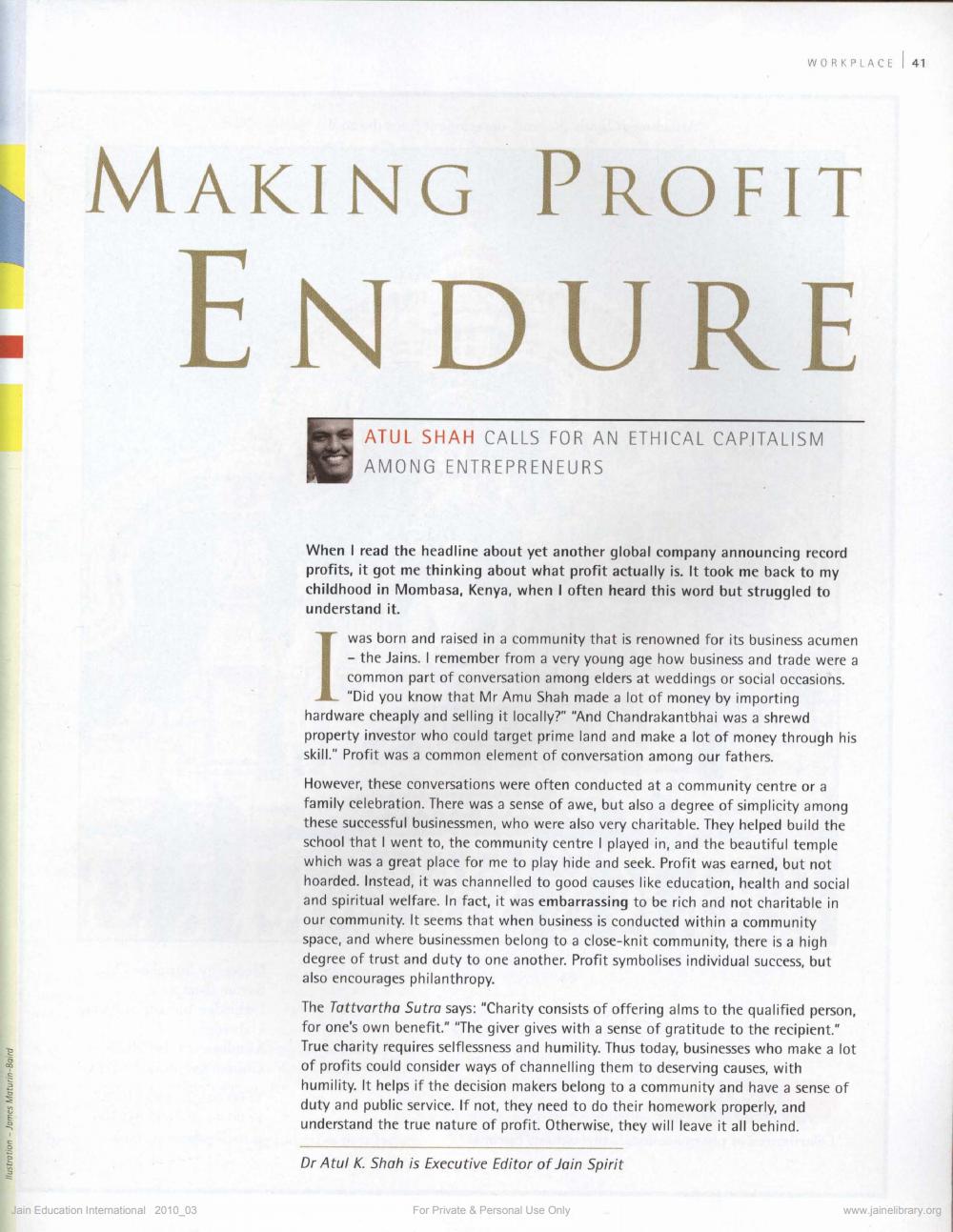________________
WORKPLACE 41
MAKING PROFIT E ENDURE
ATUL SHAH CALLS FOR AN ETHICAL CAPITALISM AMONG ENTREPRENEURS
When I read the headline about yet another global company announcing record profits, it got me thinking about what profit actually is. It took me back to my childhood in Mombasa, Kenya, when I often heard this word but struggled to understand it.
was born and raised in a community that is renowned for its business acumen - the Jains. I remember from a very young age how business and trade were a common part of conversation among elders at weddings or social occasions.
"Did you know that Mr Amu Shah made a lot of money by importing hardware cheaply and selling it locally?" "And Chandrakantbhai was a shrewd property investor who could target prime land and make a lot of money through his skill." Profit was a common element of conversation among our fathers. However, these conversations were often conducted at a community centre or a family celebration. There was a sense of awe, but also a degree of simplicity among these successful businessmen, who were also very charitable. They helped build the school that I went to the community centre I played in, and the beautiful temple which was a great place for me to play hide and seek. Profit was earned, but not hoarded. Instead, it was channelled to good causes like education, health and social and spiritual welfare. In fact, it was embarrassing to be rich and not charitable in our community. It seems that when business is conducted within a community space, and where businessmen belong to a close-knit community, there is a high degree of trust and duty to one another. Profit symbolises individual success, but also encourages philanthropy. The Tattvartha Sutra says: "Charity consists of offering alms to the qualified person, for one's own benefit." "The giver gives with a sense of gratitude to the recipient." True charity requires selflessness and humility. Thus today, businesses who make a lot of profits could consider ways of channelling them to deserving causes, with humility. It helps if the decision makers belong to a community and have a sense of duty and public service. If not, they need to do their homework properly, and understand the true nature of profit. Otherwise, they will leave it all behind.
Ilustration - James Maturin-Baird
Dr Atul K. Shah is Executive Editor of Jain Spirit
Jain Education International 2010_03
For Private & Personal Use Only
www.jainelibrary.org




